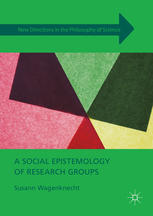

Most ebook files are in PDF format, so you can easily read them using various software such as Foxit Reader or directly on the Google Chrome browser.
Some ebook files are released by publishers in other formats such as .awz, .mobi, .epub, .fb2, etc. You may need to install specific software to read these formats on mobile/PC, such as Calibre.
Please read the tutorial at this link. https://ebooknice.com/page/post?id=faq
We offer FREE conversion to the popular formats you request; however, this may take some time. Therefore, right after payment, please email us, and we will try to provide the service as quickly as possible.
For some exceptional file formats or broken links (if any), please refrain from opening any disputes. Instead, email us first, and we will try to assist within a maximum of 6 hours.
EbookNice Team

Status:
Available4.5
20 reviewsThis book investigates how collaborative scientific practice yields scientific knowledge. At a time when most of today’s scientific knowledge is created in research groups, the author reconsiders the social character of science to address the question of whether collaboratively created knowledge should be considered as collective achievement, and if so, in which sense. Combining philosophical analysis with qualitative empirical inquiry, this book provides a comparative case study of mono- and interdisciplinary research groups, offering insight into the day-to-day practice of scientists. The book includes field observations and interviews with scientists to present an empirically-grounded perspective on much-debated questions concerning research groups’ division of labor, relations of epistemic dependence and trust.